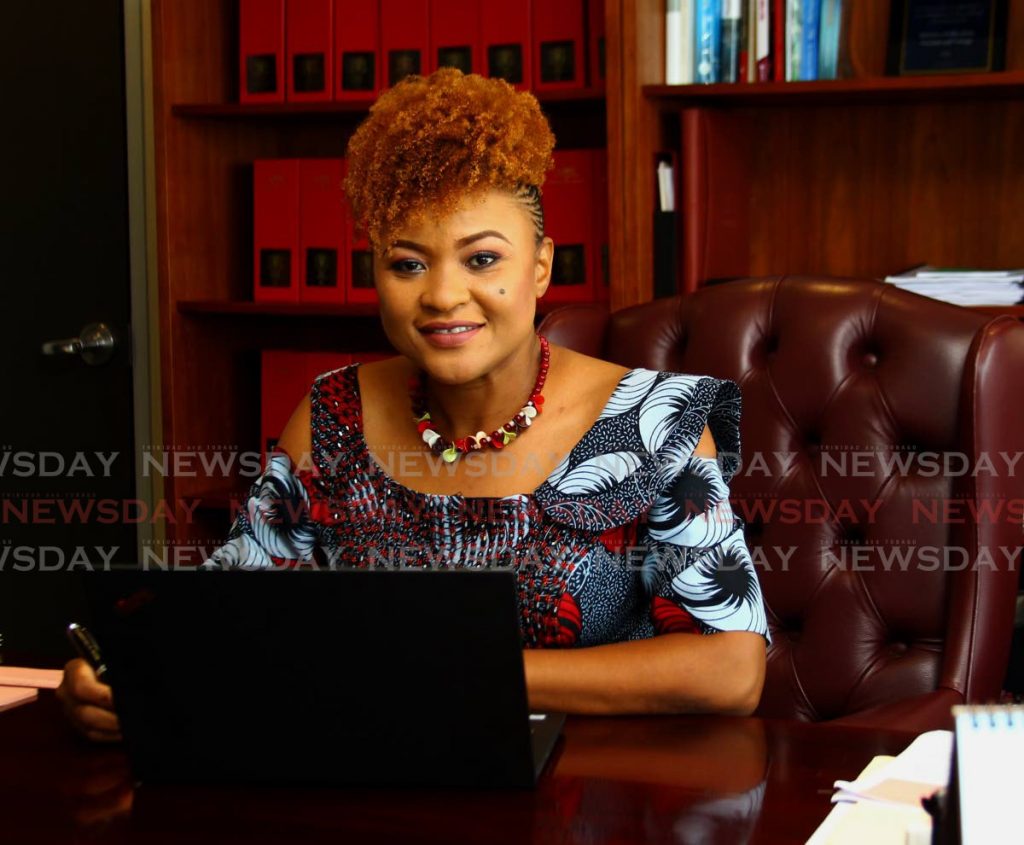Attn: Dr Gadsby-Dolly

BitDepth#1269
MY FIRST correspondence with your office was filed before you were confirmed as Education Minister, Dr Gadsby-Dolly, and it would be churlish not to note the hands-on enthusiasm that you have demonstrated facing significant challenges of the first school term and possible school year of remote learning.
There have been hiccups, a pervasive sense that a can kicked up the road had landed rather unfairly in your new playground and needed to be moved to goal.
Nobody's happy with the situation, but it would be fair to acknowledge that we are all, for the most part, equally displeased.
With one notable exception – the thousands of children still struggling to connect to online platforms either because of a lack of devices or connections or even both.
To that end, I wish to make an inquiry of your ministry, given these extraordinary circumstances.
It should not be necessary to create a Freedom of Information request to ask about the thousands of computers that were returned for repair during the 2010-2015 UNC government laptop initiative. It seems wasteful to abandon what might turn out to be a valuable resource simply because it was the concept of a rival political party and enjoyed only marginal practical success.
I've asked some quiet questions about this matter and nobody is keen to discuss what happened to, according to one source, "a warehouse of junk."
In a widely republished speech, former Prime Minister Kamla Persad-Bissessar, during a distribution of laptops at the St James Secondary School in 2013, said that between 2010 and 2013, the government distributed 68,850 laptops and an additional 4,000 to teachers.
By 2015, her government planned to put 90,850 laptops into the hands of students, most of them in the secondary school system.
During the life of this programme, two models of laptops were widely distributed, the Lenovo ThinkPad e425 and the HP Probook 4440s. Both are mid-level PCs capable of running Windows 7. Their specifications suggest they can run Windows 10 and a modern web browser with minor upgrades.
The TT Computer Society has already done proving work on old Dell business computers (http://ow.ly/rcDO30rcqR6), successfully upgrading the ageing office desktops to 4GB of RAM and replacing internal drives with an SSD.
The school laptop initiative faltered because of support system, training and human resource issues. Many laptops returned for repair weren't fixed because IT support people were spread too thinly in the school system. If only five per cent of an estimated 80,000 laptops, went in for repair and never came back, that's 4,000 computers that might be returned to service. The number is likely to be higher.
This isn't going to be a popular topic in Cabinet. Taking action on that resource might be seen as a nod of approval for a rival political party's project, a tactical no-no in modern governance.
But these are unusually difficult times.
I encourage you to consider a civil society intervention here, opening that warehouse for evaluation by qualified, apolitical technicians capable of assessing the state of the devices, making suggestions for the upgrading, repair and refurbishing to put some back into service.
It might be rude of me to remind you that these computers weren't bought by politicians out of pocket. They were purchased by taxpayers for the benefit of citizens.
The relationship between a government and its electorate shouldn't depend on the graciousness of the party holding the reins of power.
Governance should be guided by the most effective action that serves the citizens of this country.

Mark Lyndersay is the editor of technewstt.com. An expanded version of this column can be found there


Comments
"Attn: Dr Gadsby-Dolly"